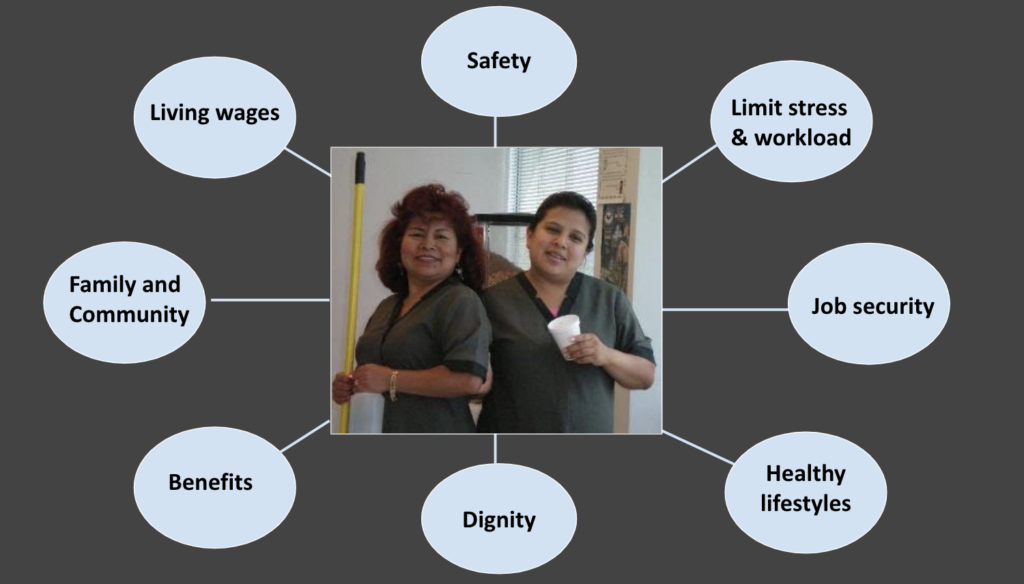
A healthy job supports a full, productive, and healthy life. Since most people spend at least half their waking hours at work, the work environment and structure affect workers and their communities in profound ways, impacting stress levels, overall health status, health care options, emotional well-being, and family life.
In 2008, LOHP issued a “Healthy Jobs Call to Action,” which we use to advance a holistic concept of what work should look like in order to promote worker health and well-being as well as dignity on the job.
A Healthy Job is one that:
1) Protects against workplace hazards
Each year, over 5,000 workers in the U.S. die from workplace exposure to a variety of job hazards. Almost 4 million are injured or made ill and can face a difficult road to recovery. Most of these injuries and illnesses can be prevented if workplaces have comprehensive programs to reduce or eliminate job hazards and foster a positive safety culture. These programs must include ways to promote worker involvement in identifying hazards and solutions and ensure that workers can speak up without fear of retaliation.
2) Provides living wages and benefits
Inadequate wages do more than cause financial stress – they lead to poor health. Evidence shows that low pay, lack of medical benefits, lack of a secure retirement, and lack of paid sick leave all have serious health impacts for workers and their dependents.
3) Respects human dignity on the job
A working environment that does not recognize the dignity of all workers can be physically and mentally damaging. A positive workplace culture is free of harassment, discrimination and disrespect. In order for workers to thrive, there needs to be effective and respectful communication systems, room for advancement, and job satisfaction.
4) Limits excessive stress and workload
Overwork and unrealistic expectations can lead to serious health effects. Workers can be more productive and efficient and lead healthier lives if they have reasonable workloads and less stress on the job.
5) Offers job security
Instability, or fear of unemployment, can be a major source of stress, as well as an impediment to obtaining adequate and regular health care. Healthy jobs provide reliable employment and fair policies that instill confidence and trust among workers.
6) Supports healthy lifestyles
Workplaces can promote a healthy work/life balance by ensuring that workers have reasonable workloads and schedules that allow them time for physical activity, rest, recreation, and other activities that support healthy lives. Workplaces can support health by providing programs such as for exercise or smoking cessation (with the time to participate in them) and access to healthy foods in cafeterias and vending machines.
7) Supports family life
Workers provide for and care for their families. This not only requires adequate income, but flexible workplaces and schedules, child care accommodation, and reasonable leave for medical necessities.
8) Supports Communities
Healthy jobs result in a healthier community. This means a commitment to responsible environmental impact (e.g., toxics exposure and waste), investment in the local economy, and a commitment to fair, community-minded development.



